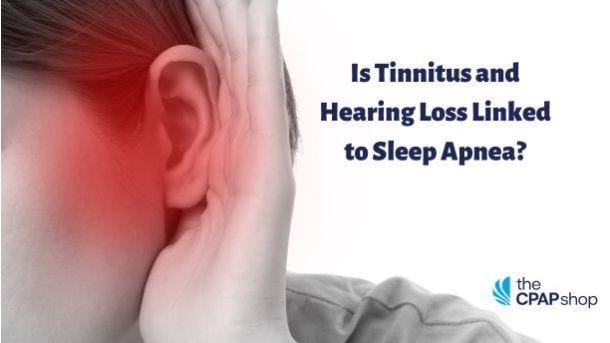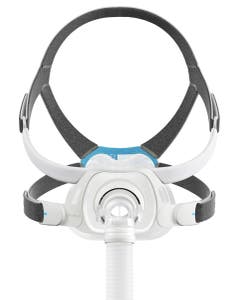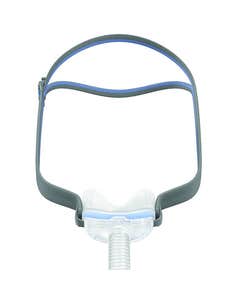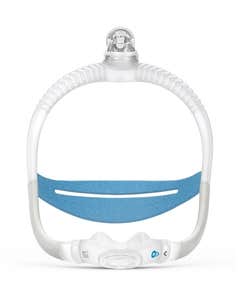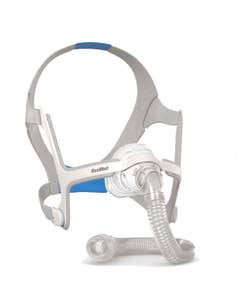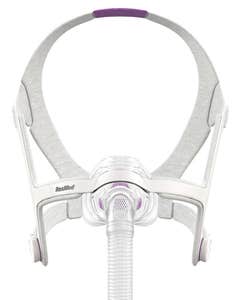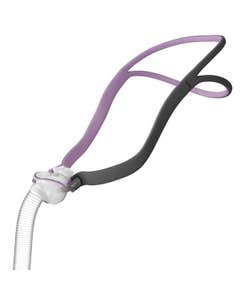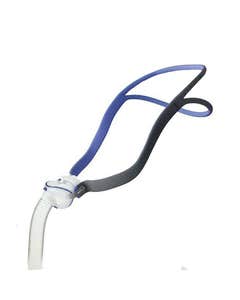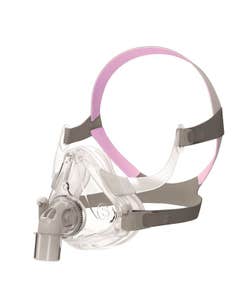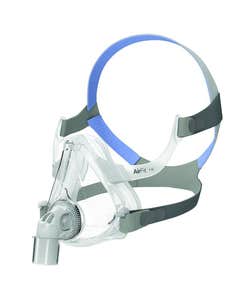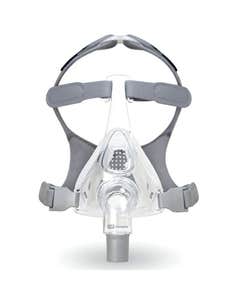Is Tinnitus and Hearing Loss Linked to Sleep Apnea?
The CPAP Shop teamed up with Dr. Vidya Pai, an experienced sleep medicine specialist, to write this blog post. Our team of authors and medical experts frequently evaluates our blog posts so that readers can learn factual information and make knowledge-based decisions. Our blogs get constantly updated with the most accurate information to provide the most up-to-date facts and research.
Due to its systemic and chronic nature, the potential list of possible sleep apnea side effects appears to be growing as a recent study shows evidence of a link between sleep apnea and hearing loss. The study found that sleep apnea was associated with hearing impairment at both high and low frequencies. That finding held true even after the researchers adjusted the data for other possible causes of hearing loss.
What is Tinnitus?
Tinnitus is the medical term for ringing in the ears. It is further defined as the “perception of a sound in the head without an external source”. Roughly 10 percent of the adult population of the U.S. or approximately 23 million have experienced tinnitus for more than three months. This real or perceived sound typically has a major adverse impact on the quality of daily life. It impacts not only concentration but things people take for granted – like sleeping.
What is the Relationship Between Sleep Apnea and Hearing Loss?
Although sleep apnea does not directly cause tinnitus and hearing loss, the sleep disorder, if left untreated, can certainly contribute to them. When oxygen levels are reduced during an apnea episode, this results in cell damage in a person’s ears. The continuous cell damage and pressure in the ear cavity cause loss of hearing. With the treatment of CPAP therapy, oxygen levels are improved, and therefore not harming the ear in any way.
Additionally, if left untreated, sleep apnea can worsen the symptoms of those who already have hearing loss. When a person is not getting the proper or adequate amount of sleep each night, symptoms of tinnitus and hearing loss become worse and less tolerable. Tinnitus can also contribute to a lack of sleep, as the symptoms can keep a person up at night. People could get caught in this never-ending circle of these three disabilities without even knowing, so it’s important for people to always be aware of certain symptoms and make actionable improvements to contribute positively to their overall health and wellness.
Study To Connect Sleep Apnea with Hearing Loss and Tinnitus
The study was based on 13,967 subjects from the Hispanic Community Health Study/Study of Latinos. Findings showed that sleep apnea was associated with a 31 percent increase in high-frequency hearing impairment and a 90 percent increase in low-frequency hearing impairment. Sleep apnea was also linked to a 38 percent increase in both high and low-frequency hearing loss, which is the location range of most speech. The study abstract was recently published after its presentation at the 2014 American Thoracic Society International Conference in San Diego, CA.
The results were garnered after all study participants undertook in-home sleep studies and audiometric (hearing) testing. With a makeup of around 53 percent of women and average participant age of 41, about 10 percent of the study volunteers had sleep apnea while nearly 30 percent had some form of hearing impairment.
Study Results Relating Sleep Apnea and Hearing Loss
Study researchers speculate that sleep apnea side effects such as inflammation and abnormal blood vessel functions may be responsible. It is currently known that untreated sleep apnea can cause plaque buildup in blood vessels. Although researchers couldn’t speak directly to the impact of sleep apnea treatment, they did acknowledge the potential for lowered risk and possible improvement of hearing loss associated with sleep apnea.
Patient Distress from Sleep Apnea and Tinnitus
According to a recent study from Henry Ford Hospital in Detroit, insomnia can have a negative impact on tinnitus, worsening the functional and emotional toll on each individual. The study shows a significant association between insomnia and the severity of perceived tinnitus symptoms, with patients reporting greater emotional distress from tinnitus. “Tinnitus involves cognitive, emotional, and psycho-physiological processes, which can result in an increase in a patient’s distress,” says study co-author Kathleen L. Yaremchuk, M.D., Chair, Department of Otolaryngology-Head & Neck Surgery at Henry Ford. “Sleep complaints, including insomnia, in these patients may result in a decrease in their tolerance to tinnitus.”
Other Problems Resulting from Sleep Apnea And Tinnitus
Having tinnitus, sleep apnea, or hearing loss can all result in a negative impact on a person’s personable life. That’s because when a person has sleep apnea, they often snore, which could be a disturbance to their bed partner. Tinnitus and hearing loss can also make having conversations with other people harder.
How to Test For Sleep Apnea
If you are feeling like you have any symptoms of the health concerns mentioned above, particularly sleep apnea, then it is imperative you get tested for proper diagnosis and treatment. There are a few ways to get tested for sleep apnea.
In-Lab Sleep Test or Polysomnography
People can take in lab-sleep test, also known as a polysomnography, which is when a person has a full night’s sleep and their sleep and breathing patterns are observed. This type of test records brain waves, oxygen levels, heart rate, and breathing patterns.
Home Sleep Tests
An alternative to in-lab tests is to take a sleep test from the comfort of a person’s own home. These are more cost-effective, user-friendly, and comfortable. Home sleep tests monitor all of the same things polysomnography does, without the several wires and discomfort of sleeping in a lab. The CPAP Shop partners with Sleep Care Online to provide a simple and affordable way to get tested for sleep apnea at home.
Treatments for Sleep Apnea
Although there are many treatments for sleep apnea, including surgery and lifestyle changes, the most common and effective way is through CPAP therapy. CPAP therapy delivers pressurized air to help open up a person’s airway to help them breathe better while sleeping. CPAP therapy is conducted through a CPAP machine and mask to deliver steady air throughout the night. To know more about sleep apnea treatment visit here.
If you would to learn more about sleep apnea or how to treat it, visit us online at The CPAP Shop or call us at +1866-414-9700. We offer hundreds of products to help those with sleep apnea get a better night’s sleep and overall improve their life. We stock all types of CPAP machines, CPAP masks, and equipment so that patients can find products that are best suited for them. Reach out to us today for more information!



